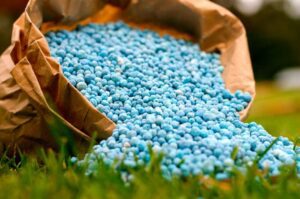
The European Union, as part of the next package of sanctions, has limited the import of fertilizers from Russia.
The restrictions do not apply to deliveries before July 10 under contracts concluded before April 9 this year, according to the Official Journal of the EU.
From July 10, the European Union introduces quotas on the import of a number of Russian fertilizers for a period of one year. The quota for the import of potassium chloride (code 3104 20) will be 837.57 thousand tons, complex and other fertilizers containing potassium (codes 3105 20, 3105 60 and 3105 90) – 1 million 577.807 thousand tons.
The size of quotas can be adjusted by the European Commission.
There are no restrictions on the import of other types of fertilizers.
Earlier on Friday, the European Commission announced that as part of a new package of sanctions against Russia, it would take “measures to counteract the supply of potassium chloride from Belarus” bypassing the sanctions.
EU, FERTILIZERS, IMPORT, QUOTAS, RUSSIA
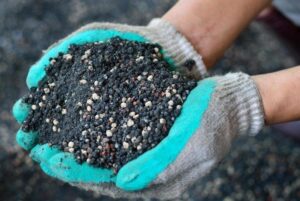
The needs of Ukrainian farmers are met by 84% for the sowing season of 2022, by 55% in crop protection agents, by 78% in seed material, the most critical shortage of fuel for agricultural equipment, but the situation is already being resolved at the level of top officials.
This comment was given by Minister of Agrarian Policy and Food Roman Leschenko to Interfax-Ukraine on Monday.
“The total need for fertilizers for sowing is covered by 84%, in crop protection agents – by 55%. This indicator is unsatisfactory, but not critical, because the lack can be compensated for by imports from the EU countries, which are ready to provide us with all the necessary support. Especially that the agronomic deadlines for the introduction of crop protection agents fall mainly in May. The most critical problem is with fuel, it is solved at the level of top officials of the state,” the minister said.
He recalled that the agrarians begin preparations for the sowing season in the autumn of the previous year, so before the war they were able to prepare the necessary resources for the sowing season in approximately the same volumes.
Leschenko said that the need for seed material in Ukraine is provided by 78%. The vast majority of the material is already in the warehouses of agricultural producers.
“As for food security, it is too early to give any assessments – everything will depend on the military situation in the state. Ukrainian farmers are very courageous and ready to work in difficult conditions to ensure food security. There are no optimal calendar dates for sowing, they depend on weather conditions. We have a cold spring, so the start of the sowing campaign has been somewhat postponed. The main period this year will be in April-May,” the minister said.
According to him, the Ministry of Agrarian Policy is in constant contact with large distributors and producers of seeds and crop protection agents, which are doing everything possible to provide food and prevent a food crisis.
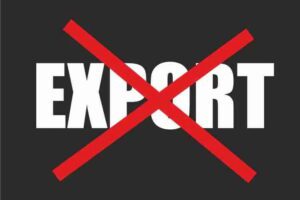
The Government of Ukraine introduces a ban on the export of fertilizers from Ukraine, Minister of Agrarian Policy Roman Leschenko said on Facebook.
“In connection with the martial law, in order to maintain balance in the domestic market of significant mineral fertilizers, the government introduces a zero quota for their export. That is, a de facto ban on the export of fertilizers from Ukraine,” he said.
Leschenko said that this applies to nitrogen (TN VED code 3102), phosphorus (TN VED code 3103) and potassium (TN VED code 3104) mineral or chemical fertilizers.
According to him, this list also includes complex fertilizers – containing two or three nutrients: nitrogen, phosphorus and potassium; other fertilizers; goods of this group in tablets, packages with a gross weight of not more than 10 kg (TN VED code 3105).
“I emphasize that this ban is of forced and temporary nature and is used to restore the balance of certain goods in the domestic market and ensure the sowing campaign, which is extremely important in order to prevent a food crisis in Ukraine and the world,” the head of the Ministry of Agrarian Policy said.
As reported, a few days earlier, the government added fertilizers to the list of critical imports, for the purchase of which it is allowed to buy foreign currency.
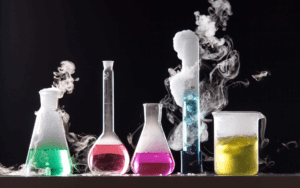
PrJSC Severodonetsk Azot, part of Group DF of businessman Dmytro Firtash, in January-March 2021 increased the production of mineral fertilizers by 47.4% compared to the same period in 2020, to 265,620 tonnes, according to the company’s press release published on Tuesday.
During this period, the production of ammonium nitrate decreased by 9.2%, to 141,610 tonnes, urea increased by 3.7 times, to 119,600 tonnes, urea-ammonium nitrate (UAN) by 4.6 times, to 17,400 tonnes, and the production of ammonia water decreased by almost 94.7%, to 150 tonnes.
In addition, the enterprise produced 147,810 tonnes of ammonia; 1,590 tonnes of liquid carbon dioxide and 20,170 cubic meters of medical oxygen in cylinders.
“We managed to increase the utilization of the company’s production capacities from 30% to 50%. Further growth of production volumes will depend on the level of demand for mineral fertilizers and on how the ICIT [Interdepartmental Commission on International Trade] resolves the issue of limiting imports of nitrogen fertilizers in Ukraine,” Board Chairman of Severodonetsk Azot Leonid Buhayov said.
He said that the enterprise will be able to continue to load workshops and increase production if imports are limited due to quotas.
In May 2020, Severodonetsk Azot restored the full production cycle, it began production of its own ammonia and the production of ammonium nitrate, urea, and urea-ammonium nitrate, which made it possible to load production capacities by about a third. According to the company, all concluded contracts are fully implemented, despite the special working conditions during the quarantine period. The enterprise said that some workshops had been idle for more than seven years due to hostilities in the region, lack of reliable power supply and damaged infrastructure.
PrJSC Severodonetsk Azot is one of the largest Ukrainian chemical enterprises. It has been part of Dmytro Firtash’s Group DF since 2011. The core business of the enterprise is the production of mineral nitrogen fertilizers.
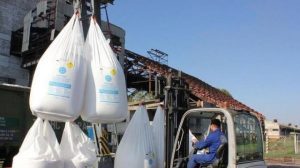
The enterprises of Ostchem Holding, which unites the nitrogen enterprises of Dmytro Firtash’s Group DF, produced 2.5 million tonnes of mineral fertilizers in the first nine months of 2020, which is 23.8% more than in the same period last year.
Rivneazot produced 636,300 tonnes (4% more), Severodonetsk Azot 579,600 tonnes (149% more), Cherkasy Azot some 1.29 million tonnes (a rise of 9.9%).
In 9M 2020, enterprises produced a total of 1.2 million tonnes of ammonia (for the nine months of last year – 763,000 tonnes), one million tonnes of ammonium nitrate (992,000 tonnes), 665,000 tonnes of urea (450,000 tonnes), 534,000 tonnes of urea-ammonia mixture (408,000 tonnes in January-September 2019), 176,000 tonnes of lime-ammonium nitrate and 48,000 tonnes of ammonia water.
Ostchem is a nitrogen holding, part of Group DF. It brings together the chemical producers Rivneazot, Severodonetsk Azot, Cherkasy Azot, as well as the retail operator Ostchem Retail.
Group DF also includes other Firtash’s assets in gas distribution, chemical, titanium and port industries. The group also develops businesses in the field of agriculture and media.
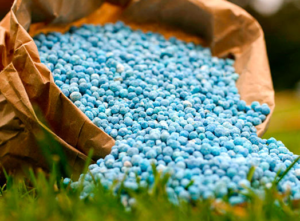
PJSC Azot (Cherkasy), part of Dmytro Firtash’s Group DF, produced 1.42 million tonnes of nitrogen fertilizers in January-November 2019, which is 9.2% more than for the whole of 2018, Group DF’s press service has said.
According to a press release, production of ammonium nitrate for the reporting period amounted to 417,500 tonnes, carbamide some 557,200 tonnes, carbamide-ammonia mixture some 438,100 tonnes. At the same time, production of ammonia was 55,700 tonnes, non-concentrated nitric acid some 507,200 tonnes, and ammonia water some 9,200 tonnes.
“In 2019, we achieved almost 100% loading of our production capacities. The growth in production volumes by the end of the year will be about 10% … For the 11 months of this year, we increased production of carbamide-ammonia mixture by 81% compared to the corresponding period last year (from 240,900 tonnes to 438,100 tonnes). Carbamide production increased by 55%. Nitrate production also increased, but only slightly,” Group DF’s press service said citing Vitaliy Skliarov, the chairman of the company’s board.
Among the main growth factors, the company indicates the antidumping measures of the Interdepartmental Commission on International Trade regarding the supply of fertilizers from the Russian Federation.